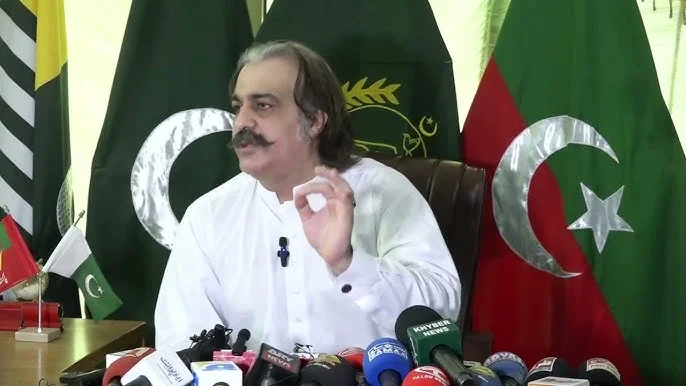Understanding AQI and Its Importance:
The Air Quality Index (AQI) is a simple way to check how clean or dirty the air around us is. It uses numbers from 0 to 500—0 means the air is good, and 500 means it’s very bad and dangerous.
In Peshawar, the current AQI is 163 which is unhealthy and often goes above safe levels because of smoke from cars, factories, and dust in the air.
Other cities in Khyber Pakhtunkhwa (KP) also face similar problems, with traffic and construction adding to the pollution.
To make our air healthier to breathe, we need better policies that focus on sustainable and clean solutions.
Govt of KPK Initiatives:
The Khyber Pakhtunkhwa government, led by Chief Minister Ali Amin Khan Gandapur, has made a notable move to combat air pollution.
During a high-level meeting chaired by the Chief Minister, in-depth discussions (KPK Efforts for AQI) and decisions were made to address the air quality issues, especially in the provincial capital, Peshawar.

Key Initiatives to Improve Air Quality:
Electric Vehicle Policy:
To address future air pollution issues, the provincial government has decided to introduce an Electric Vehicle Policy.
This move aims to reduce emissions and promote sustainable transportation options in the region.
Action Plan for Air Quality and Smog Control:
An action plan has been finalized to improve the Air Quality Index (AQI) and control smog in Peshawar and surrounding districts. The plan includes:
- Short-term, mid-term, and long-term measures to combat air pollution.
- Formation of a task force to ensure effective implementation.
- Coordination among departments through a committee led by the Additional Chief Secretary for Planning.
The action plan will soon be presented to the provincial cabinet for approval.
Innovative Solutions for Real-Time Monitoring and Emissions Control:
- Modern Control Room: A state-of-the-art control room will be established for real-time monitoring of air quality in Peshawar and nearby areas.
- Emission Monitoring System: Industries will be monitored through an advanced Emission Monitoring System to regulate smoke and pollutants.
- Vehicle Emission Testing: Mechanisms will be introduced at Peshawar’s entry and exit points for vehicle emission testing. The process of issuing vehicle fitness certifications will also be digitized.
Addressing Key Sources of Pollution:
- Brick Kilns: Registration of brick kilns and their phased transition to zig-zag technology to reduce emissions.
- Illegal Crushing Plants: Strict actions will be taken to shut down illegal crushing plants.
- Industrial Units: Enforcement against industrial units causing air pollution.
- Petrol Pumps: Measures to curb the sale of low-quality fuel by petrol stations.
Infrastructure and Public Awareness Initiatives:
- Air Quality Monitoring Stations: Installation of AQI monitoring stations in all divisional headquarters.
- Air Purification Towers: Peshawar will soon have Air Purification Towers to reduce pollution levels in urban areas.
- Environmental Protection Agency (EPA): Steps to enhance the capacity of the EPA, including the establishment of regional offices.
Tree Plantation and Community Involvement:
The government is starting a big tree-planting program to fight pollution and create more green spaces. They plan to plant eco-friendly trees that are good for the environment.
Schools will also focus on teaching students about air pollution, helping them understand why clean air and protecting nature are so important.
Key Challenges and Strategic Solutions:
A briefing during the meeting revealed the major contributors to air pollution in Peshawar:
- Transport sector: Responsible for 58% of air pollution.
- Dust from roads: Accounts for 17% of pollution.
The Chief Minister highlighted the importance of a coordinated strategy and established timelines for executing the action plan.
He assured that the provincial government is dedicated to supplying the necessary resources to tackle this pressing issue.
Commitment to a Cleaner Future:
Chief Minister Gandapur stressed the need to balance controlling pollution and protecting people’s livelihoods.
He said, “Our efforts to reduce pollution should not hurt anyone’s income.”
The government will also work to keep public spaces green, clean streets regularly, and involve the community in creating a healthier environment.

